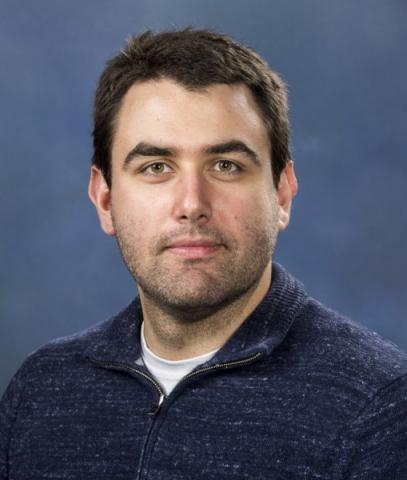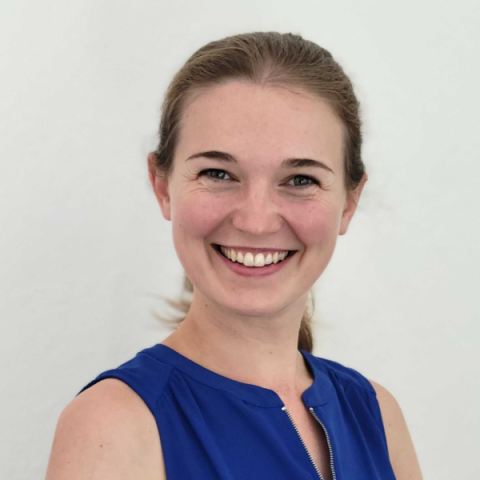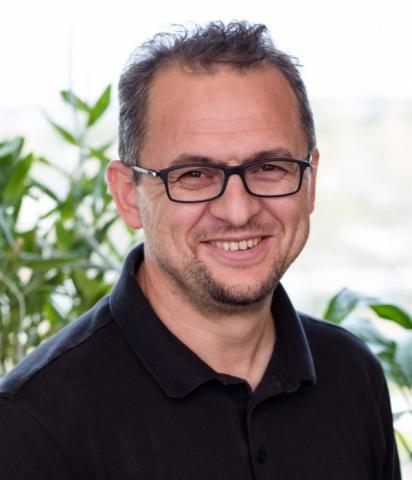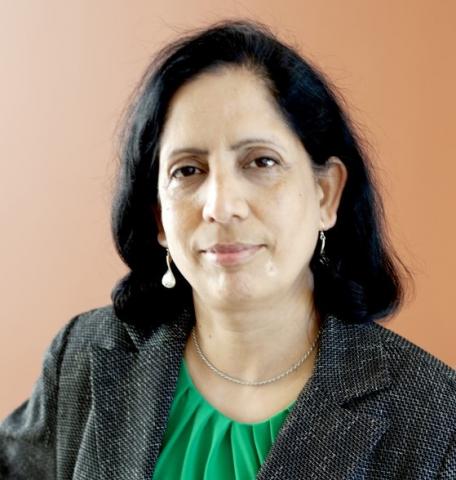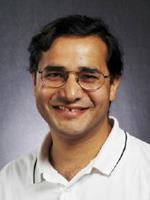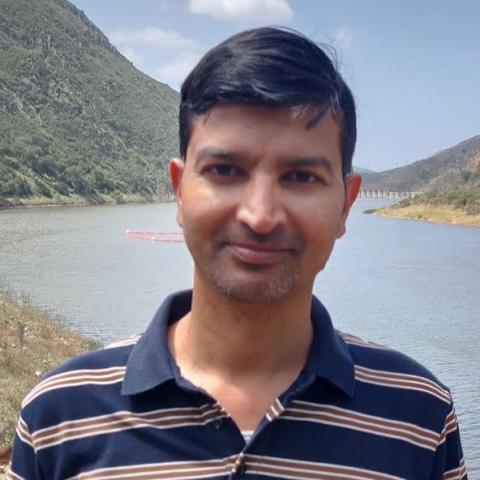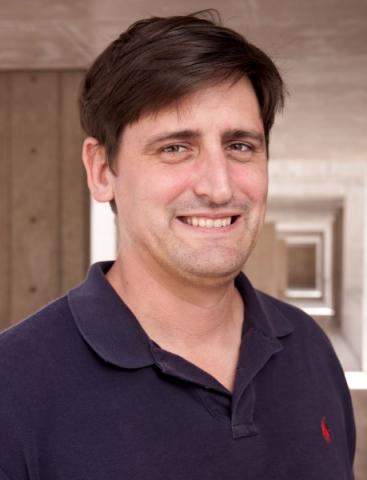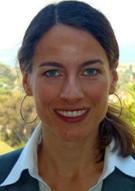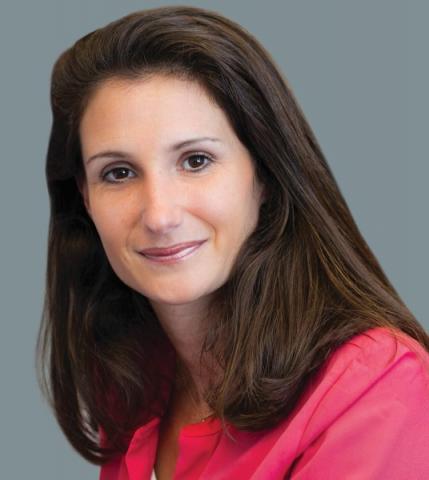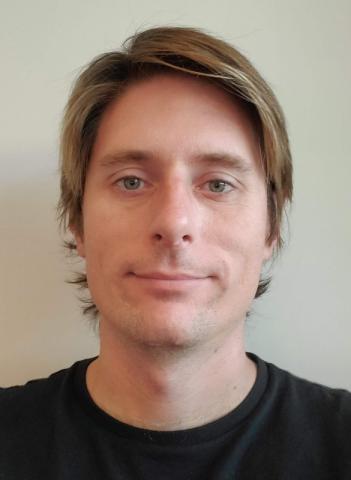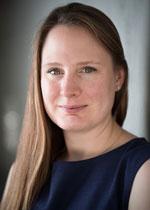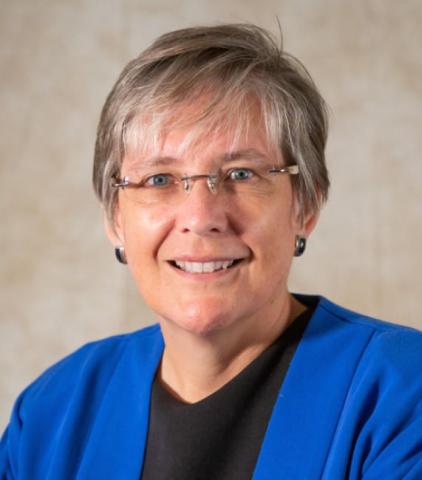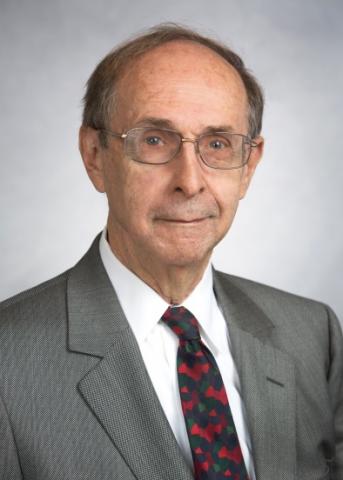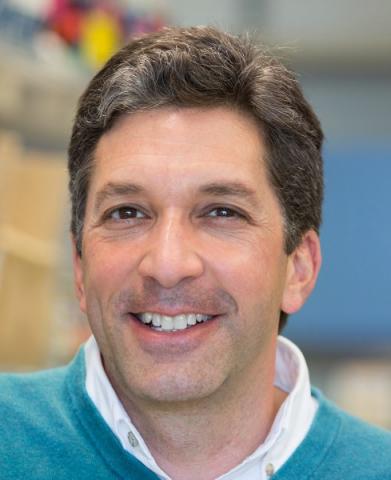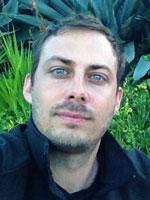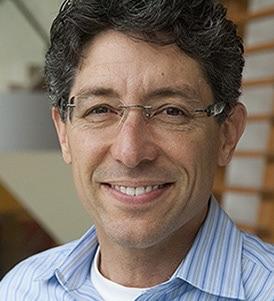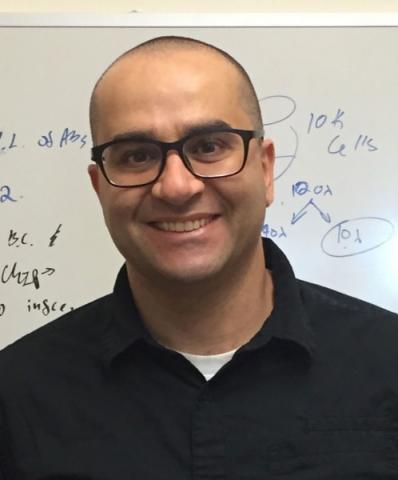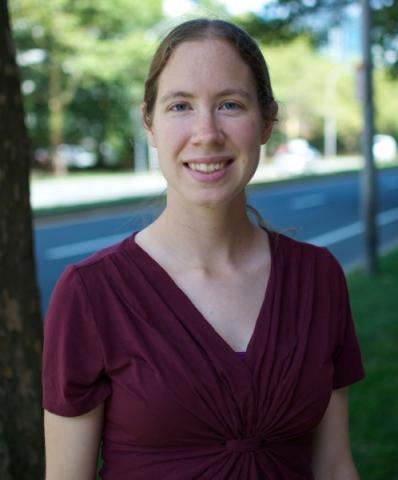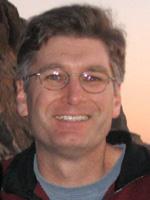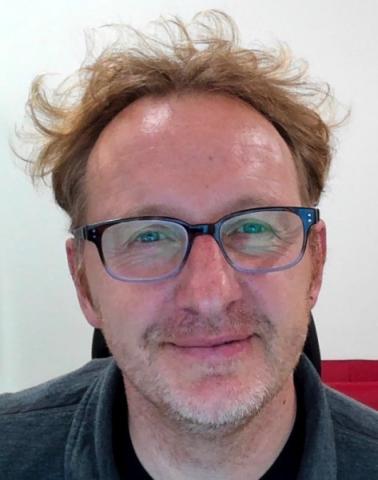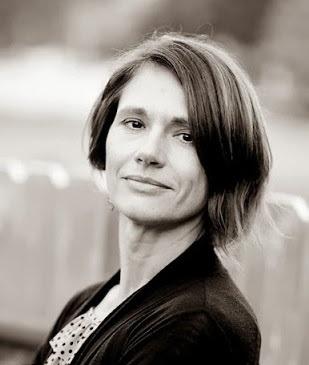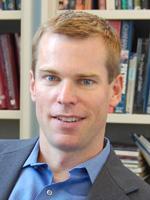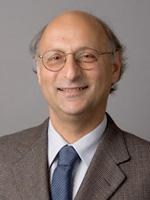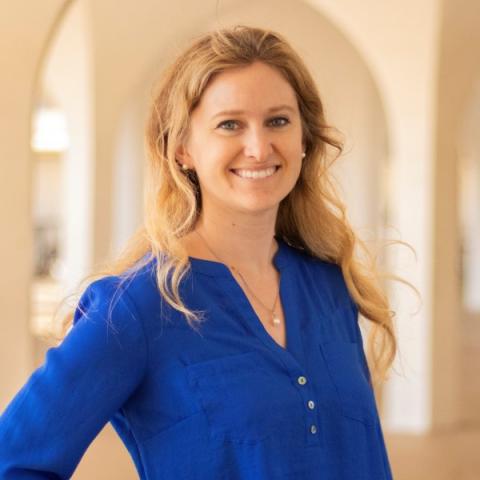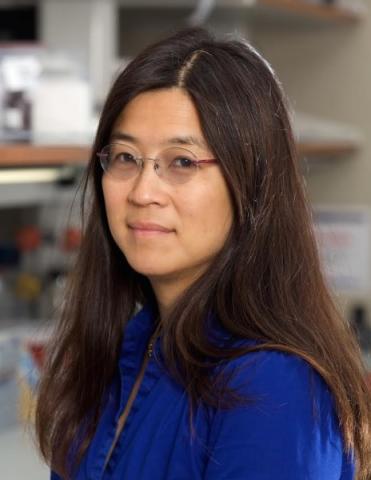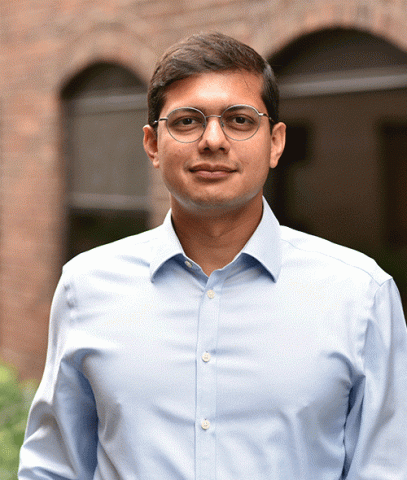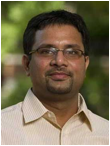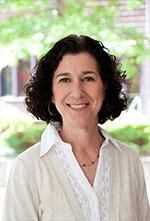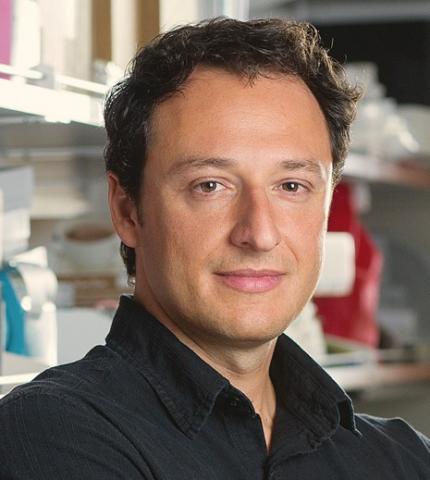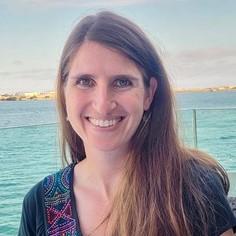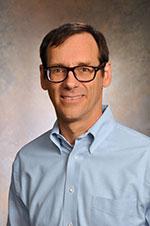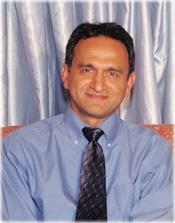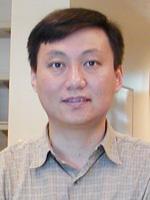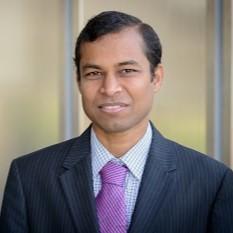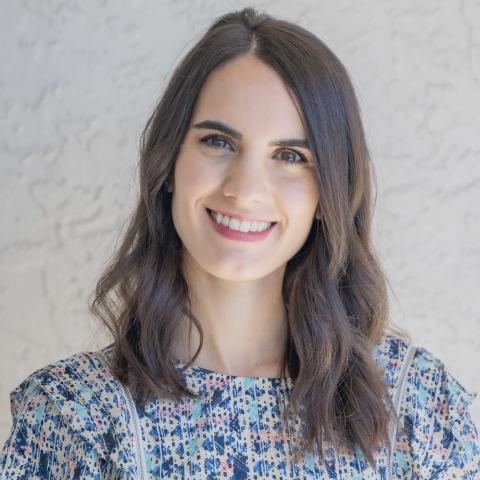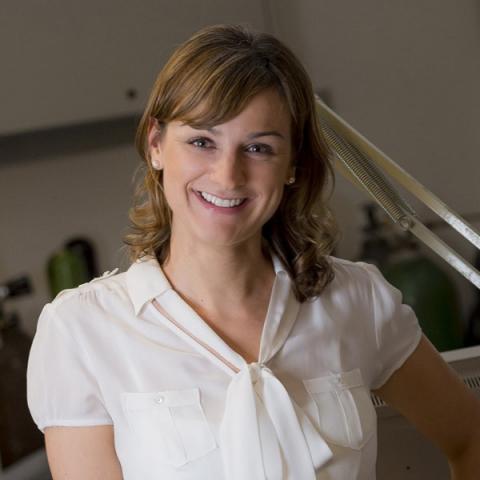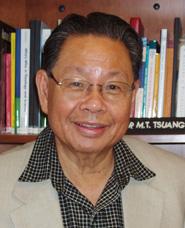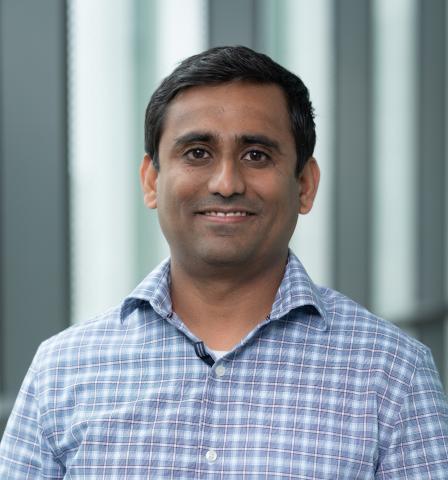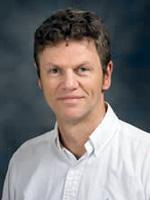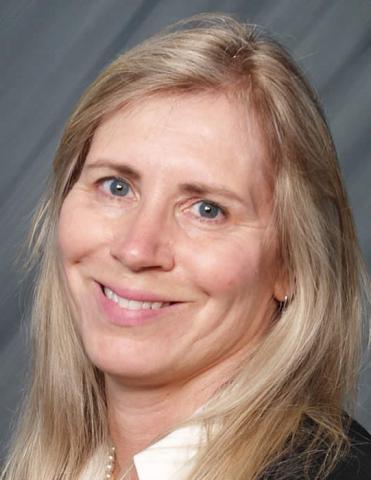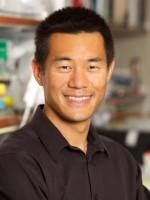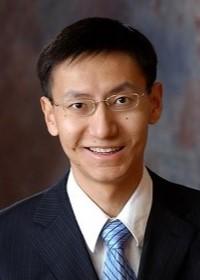Skip to main content
- Professor of Cellular and Molecular Medicine and Steven Kuffler Chair of Biology (Neurobiology)
- Howards Hughes Medical Institute Investigator
Genetic mechanisms of neurodevelopment and neurodegeneration, post-transcriptional regulation of neuronal homeostasis.
- Associate Professor of Cellular and Molecular Medicine and Bioengineering
We leverage machine learning approaches to understand the processes that cause cancer and identify strategies for cancer treatment and cancer prevention.
- Assistant Professor in the Halıcıoğlu Data Science Institute and the Department of Medicine (Division of Biomedical Informatics)
- Department of Medicine (Division of Biomedical Informatics)
We develop statistical genetics methods to improve equity of genetic discoveries across global populations and to infer precise causal mechanisms of polygenic disease
- Institute Leadership Associate Professor of Computational BiologyAssociate Adjunct Professor
- Associate Adjunct Professor
- UCSD - Department of Pediatrics - Division of Genome Information Sciences
- Bioinformatics and Systems Biology Graduate Program (Adjunct)
Development and use of computational methods to understand how the three-dimensional folding of the genome influences disease risk and severity for autoimmune diseases and cancer.
- Professor of Ophthalmology and Pathology
- Viterbi Family Chair of Ophthalmic Genetics
- Director of Shiley Eye Institute Biobank
Our lab focuses on genetics and molecular mechanisms underlying ophthalmic diseases with emphasis on retinal degenerations.
- Professor of Computer Science
We are a small lab, working on problems with an applied algorithmic flavor, with a focus on Genomics, Population Genetics, and Computational Mass Spectrometry.
- Associate Professor of Pediatrics, Division of Genome Information Sciences
Variant calling in human genomes, DNA Sequencing Data Analysis, rare varoants in complex disease.
- Assistant Professor of Cellular and Molecular Medicine and Bioengineering
Transcriptional regulation and regulatory element analysis in a wide range of systems, with an emphasis on infectious diseases.
- Professor of Medicine
- Division of Genomics and Precision Medicine
We are interested in computational variant interpretation for precision medicine, particularly for cancer. We study the effects of variants on molecular networks, and their role in cancer risk, tumor evolution and response versus resistance to therapies.
- Associate Professor of Pediatrics, Division of Genetics
Development of preclinical and clinical stem cell and gene therapy approaches for genetic disorders.
- Associate Professor of Medicine
- Director, UCSD Cardiovascular Genetics Clinic and Cardiac Tissue Harvest and Biorepository Core
Our laboratory uses a combination of human cardiovascular patients and their samples derived from our UCSD Sulpizio Cardiovascular Center as well as various model organisms, such as zebrafish, newts, and mice, for our investigations
- Assistant Professor, Division of Biomedical Informatics
We integrate bioinformatics and mathematical models with genomic and clinical data to uncover the evolutionary dynamics of cancer, leading to novel predictive models and translational insights.
- Assistant Professor in the Department of Medicine
We work on developing novel methods to perform genome-wide association studies (GWAS) in multiple populations and admixed individuals. We are also interested in the associations of HLA types with disease and in their potential use for improving PRS calculation.
- Assistant Professor of Medicine and Molecular Biology
We use high-throughput functional approaches within developing embryos to decipher how enhancers encode the instructions for successful development and to pinpoint enhancer mutations associated with disease.
- Assistant Professor in the Department of Anthropology, Global Health Program, and the Halıcıoğlu Data Science Institute
- Co-Founder and Co-Director of Indigenous Futures Institute
His work focuses on the connection between raw data as a resource and the emerging value of genomic health data from Indigenous communities.
- Director, Institute for Genomic Medicine
- Professor of Pediatrics
Disease predisposition in cancer, congenital heart disease, asthma, and obesity, using genomic information. Next generation sequencing platforms.
My group and I have characterized some of the molecular and biochemical mechanisms underlying the neuropathological features of the disorder and we have discovered that mutations of the HPRT gene responsible for the disorder regulates differentiation of stem cells into dopaminergic brain neurons.
Identifying and targeting genetic and epigenetic mechanisms that cause adult and pediatric brain tumors
- Professor of Computational Biology and Genomics
- Director, Scripps Genome Center
Computational methods to analyze large-scale and high-dimensional genome-wide data. Assembly and annotation of model organism genomes. Genomics of Primary Open Angle Glaucoma, young onset Alzheimer's, and Prostate Cancer Bone Metastasis.
- Assistant Professor of Pediatrics
Genetics and Epigenomics of Type 1 diabetes and other complex diseases.
- Professor of Medicine and Cellular and Molecular Medicine
Transcriptional regulation of the macrophage in immunity and inflammatory disease.
- Professor of Neurosciences
- Investigator of the Howard Hughes Medical Institute
We work at the interface of clinical neurology and genomics. By identifying families with inherited neurological disease, we identify the genetic basis of human disease, and then work to develop new therapies from these discoveries.
- Assistant Professor of Medicine
Employment of molecular biology, technological innovations and computational analyses to study epigenomic mechanisms.
- Associate Professor of Medicine and Computer Science and Engineering
Our overall goal is to understand complex genetic variants that underlie human disease. We are particularly interested in repetitive DNA variants known as short tandem repeats (STRs) as a model for complex variation.
- Professor of Cellular and Molecular Medicine
Genetic architectures and modifier genes. Transcriptional and post-transcriptional regulatory networks in brain development and disease.
- Assistant Professor In Residence of Medicine
Transcription regulation and genome 3D structure in inflammatory stimulus responses, virus infections and cancer. Method development and repurposing chromatin profiling methods for clinical diagnostics.
- Associate Professor of Psychiatry
Molecular basis of neurodevelopmental diseases, autism spectrum disorders, schizophrenia, genetics, genomics, transcriptomics, proteomics, co-expression and protein interaction networks, stem cell and mouse models.
- Division Chief, Medical Genetics
Network and systems biology, high-throughput enabling technologies.
Psychiatric genetics, especially bipolar disorder and schizophrenia.
- Professor of Medicine
- Executive Director for Laboratory Science & Technology, New York Office–Ludwig Institute for Cancer Research
- Head, Laboratory of Cancer Genetics, San Diego Branch–Ludwig Institute for Cancer Research
Genome stability, maintenance and repair in model systems and human cancers.
- Assistant Professor of Department of Chemistry and Biochemistry
Development of new precision genome editing methodologies, mechanistic studies on how genome editing tools work, and application of these tools to functionally interrogate how point mutations contribute to human disease.
- Professor of Obstetrics, Gynecology, and Reproductive Sciences
Our research focuses on understanding how cell identity is determined and how transitions between cells states are regulated, both in normal development and in disease. We combine expertise in stem cell biology and genomics to tackle problems in basic developmental biology, focusing on the placenta, as well as translational targets, such as discovery of biomarkers predictive or diagnostic of preterm birth, preeclampsia, and other disorders of placentation.
- Associate Professor of Medicine
- Division of Endocrinology
Integrative functional genomic and human genetic approach to discovering cardiometabolic disease genes with therapeutic properties.
- Professor of Bioengineering
Genome Engineering, Synthetic Biology, Regenerative Medicine
- Associate Vice Chancellor for Computational Health Sciences
- Professor of Medicine Moores Cancer Center
Machine learning and statistical methods for analysis of genomic data with particular emphasis on applications to cancer genomics and infectious disease. Development and dissemination of open source software tools embodying the computational methods.
- Professor of Pediatrics
- Professor of Cellular & Molecular Medicine
- Director of the UCSD Stem Cell Program UCSD Moore’s Cancer Center
Applying molecular tools and stem cells models to understand brain development, complexity and evolution.
- Associate Professor of Anthropology
Biological embedding of social and racial inequalities; social epigenetics, early life adversity; DNA methylation; exosomal milk miRNAs.
- Professor and Vice Chair for Basic Research, Department of Psychiatry
Genome wide association in mice, rats and humans; integration of behavioral, physiological and gene expression traits.
- Professor of Pediatrics
- V/C for Innovation in Therapeutics
AIDS, immune disorders, neurodegenerative diseases, and cancer
- Professor of Cellular and Molecular Medicine
Epigenetics, genome-wide expression and high-throughput technologies to identify genomic architectures of expression states in cancer and normal cells.
- Associate Professor of Pediatrics and Computer Science
The Boolean lab at UCSD focuses on developing computational approaches on complex biological datasets using Boolean invariant rules and machine learning.
- Associate Professor, Department of Psychiatry, School of Medicine, UCSD Department of Medicine, Division of Genetic Medicine, VUMC
Our laboratory seeks to advance precision psychiatry by synthesizing disparate data types including genetics, genomics, and medical bioinformatics, and leveraging complementary technologies in human and model organisms.
- Chief, Beyster Center for Molecular Genomics of Neuropsychiatric Diseases
- Professor of Psychiatry and Cellular and Molecular Medicine, UCSD
Genetics of Neuropsychiatric Disorders, Bioinformatics, Statistical Genetics, Genetic Therapies
- Associate Professor
- John B. West Endowed Chair in Respiratory Physiology in the Department of Medicine, Division of Pulmonary, Critical Care, Sleep Medicine, and Physiology
- Founder and Co-Director, Center for Physiological Genomics of Low Oxygen
Integrative physiological omics studies of adaptive and maladaptive responses to hypoxia in global populations.
- Distinguished Professor of Psychiatry
- Lewis Judd Endowed Chair in Behavioral Genomic
- Director, Center for Behavioral Genomics
Interactions between genetic and environmental risk factors for severe mental disorders.
- Assistant Professor, Electrical and Computer Engineering Affiliate Professor, Computer Science and Engineering Affiliate Professor, Bioinformatics and Systems Biology
We are an interdisciplinary group of researchers working on a broad range of problems at the cutting-edge intersection of computer engineering and bioinformatics.
- Professor of Obstetrics, Gynecology, and Reproductive Sciences
Transcriptional regulatory pathways in stem cell and germ cell development; Biological functions of nonsense-mediated RNA decay (NMD), a conserved and selective RNA turnover pathway that functions in early embryonic development, neural development, and neural functions.
- Professor of Pediatrics
- Director of Translational Research, UC Health Sciences Center for Immunology, Infection and Inflammation
Genetics, genomics, sequencing, microarrays, chemical genetics, drug discovery, bio and cheminformatics in neglected/infected diseases.
- Assistant Professor of Electrical and Computer Engineering
We develop multi-modal large language models and foundation models for single-cell transcriptomics, proteins, and drug molecules.
- Professor of Cellular and Molecular Medicine
- Co-Director Bioinformatics and Systems Biology Graduate Program
- Member, UCSD Stem Cell Program
- Member, Moores Cancer Center
- Department of Bioengineering (Adjunct)
- Neurosciences Graduate Program (Adjunct)
Post-transcriptional regulation by RNA binding proteins in neurological and mental disorders, virus-host interactions and cancer.
- Professor of Bioengineering
Computational genomics, stem cell engineering, molecular biotechnologies

